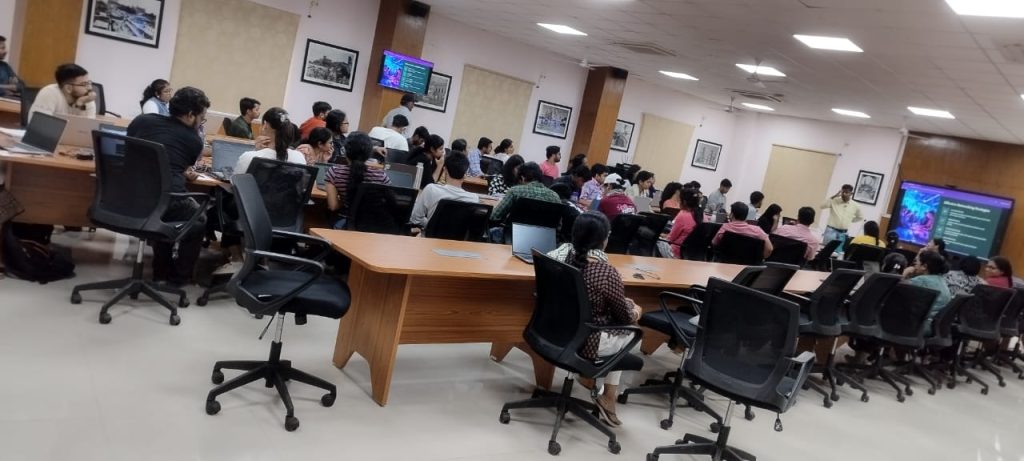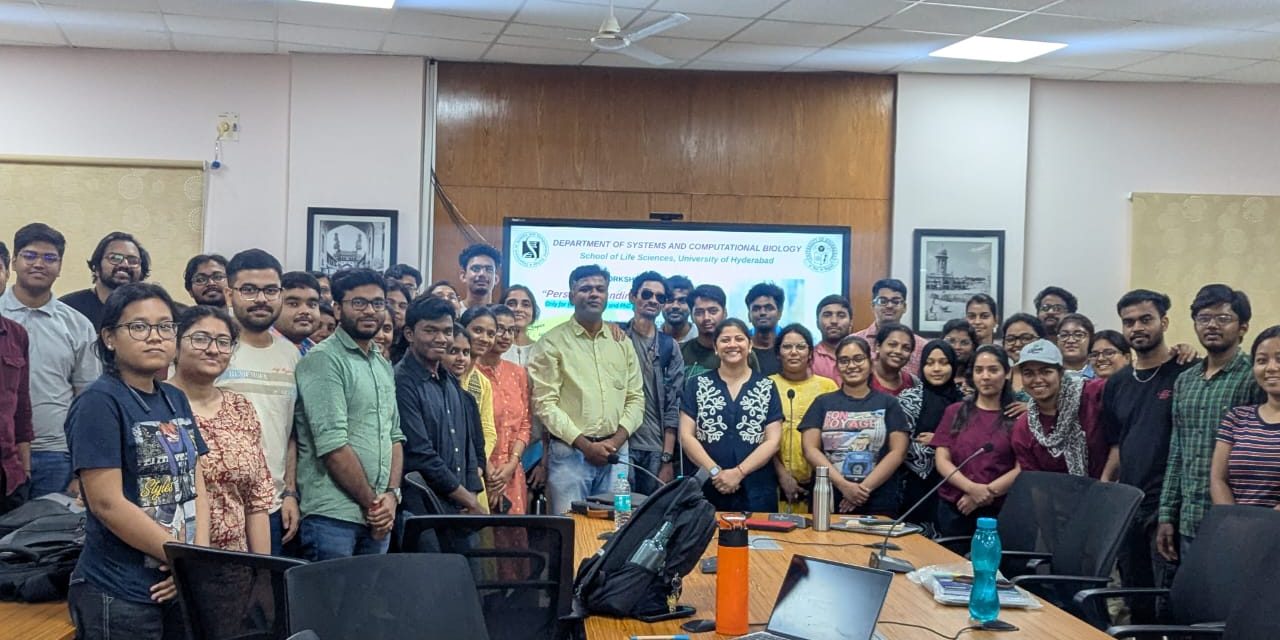The Department of Systems and Computational Biology (DoSCB), School of Life Sciences, University of Hyderabad (UoH), successfully organized a unique and insightful workshop on “Personal Branding in Life Sciences” on 29th March 2025. The event aimed to equip students and young professionals with the skills to build a strong professional presence, craft impactful CVs, and enhance networking strategies.
The workshop covered key topics such as Academic CV Writing, Industrial CVs, the Difference Between a CV and a Resume, Cover Letters, Cold Emailing, creating a LinkedIn Profile, Utilizing LinkedIn for Job Searches, and The Art of Networking. These subjects are often overlooked in traditional academic training, yet they play a crucial role in career advancement.

The session was led by Dr. Jagadeesh Gandla, Chief Operating Officer, Federation of Asian Biotech Association (FABA) and coordinated by Dr. Manjari Kiran, Assistant Professor, Department of Systems and Computational Biology who shared valuable insights on how individuals can effectively showcase their skills and expertise in the competitive life sciences domain. Participants engaged in interactive discussions, practical exercises, and real-world examples, making the workshop highly engaging and beneficial.
The initiative was well-received, with enthusiastic participation from master’s and PhD students of the School of Life Sciences. Many attendees appreciated the practical guidance, emphasizing how the workshop helped bridge the gap between technical expertise and professional presentation.
Speaking about the event, the head of the Department, Prof. H.A. Nagarajaram, highlighted the importance of personal branding in today’s professional landscape. “This workshop was essential in bridging the gap between skills and presentation. Regardless of whether one is currently in the job market or not, personal branding is often overlooked—yet we expect others to recognize our work on their own. Actively shaping our professional presence is crucial,” he remarked.
The Department of Systems and Computational Biology takes pride in initiating such impactful sessions and looks forward to organizing similar events in the future. The success of this workshop reaffirms the importance of integrating professional development skills into academic training.

